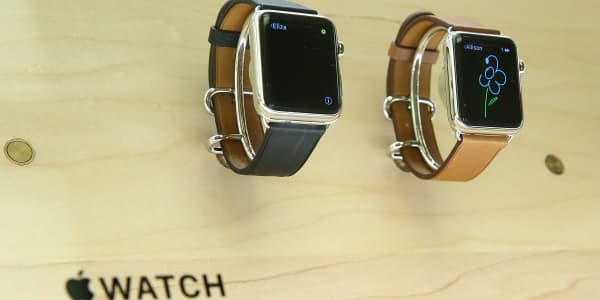
Mobile payment methods such as Apple Pay and Samsung Pay could be more secure than credit or debit cards with embedded security chips, according to one cybercrime expert.
Those systems don't leave credit card numbers, expiration dates and other personal information vulnerable in the same way that traditional credit cards with just a magnetic stripe do, said Eric Friedberg, co-founder of digital forensics firm Stroz Friedberg.
"It's essentially encrypted," said Friedberg, a former cybercrime prosecutor. "And the attackers, even if they capture it, they can't do anything with it. So those things are much more secure than just the magnetic stripe cards."
Mobile payments are expected to account for $8.71 billion in transactions in 2015, according to a study by eMarketer. In 2016, the number could reach $27.05 billion, the firm estimates.
Chip cards have become a new standard in the U.S., according to the Electronic Transactions Association. The trade group estimates that about 60 percent of American cardholders have received chip cards from their banks, about 44 percent of retailers have chip card readers in their stores and those numbers are growing.
To pay securely using a chip card, consumers insert their card into a terminal, and a code is issued to approve a transaction. That code can't be replicated, which means transactions are more secure, according to card processing company Visa.
But those cards still have the traditional magnetic stripe, which can give identity thieves easier access to that information, Friedberg noted. Meanwhile mobile payment systems take the magnetic stripe out of the equation entirely.
And another layer of security seems to be getting more popular: biometric screening.
"Already today, millions of Americans are using biometrics when making a payment," said Jason Oxman, CEO of the Electronic Transactions Association. Apple Pay, Samsung Pay and Google's Android Pay use fingerprint readers built into mobile devices to authenticate mobile transactions, Oxman said in an email.
And some payment processing firms including MasterCard and Verifone are testing systems that scan users' fingerprints, voices, eyes or faces before completing a transaction, Oxman said.
Nearly 65 percent of global mobile commerce transactions will use some from of biometric screening by 2020, generating $34.6 billion in annual revenue, Oxman noted, citing recent estimates from Acuity Market Intelligence.





